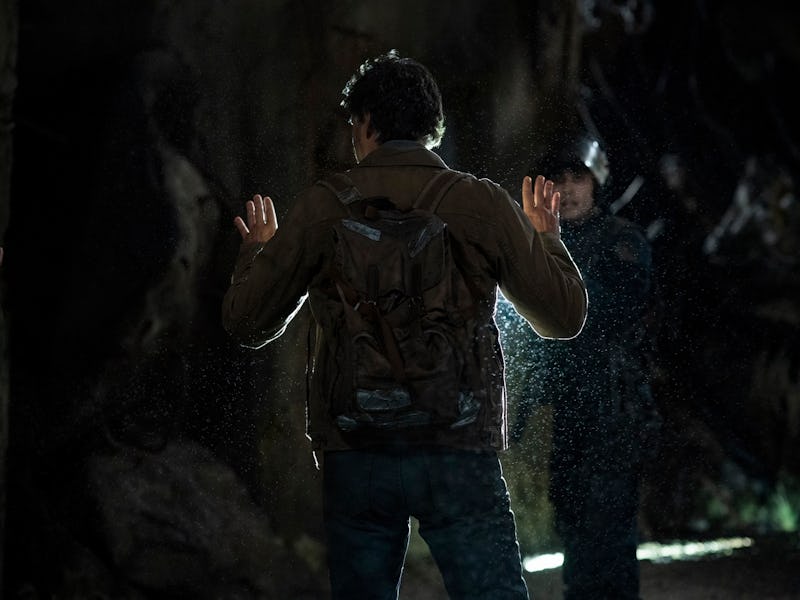The Last of Us Episode 1 wisely rewrites one iconic video game moment
In one brief moment, Joel unleashes all of his fury over his daughter’s death.

The death of his daughter, Sarah (Nico Parker), at the hands of a cautious soldier is the tragic, defining moment of Joel Miller’s (Pedro Pascal) life. Anyone who’s played 2013’s The Last of Us already knew that. Now, so do the viewers of HBO’s TV show.
The post-apocalyptic series premiered with an episode that predictably but wisely centers around Sarah Miller’s death. The tragic moment comes about a third of the way through The Last of Us Episode 1, but the impact reverberates throughout its entire 85-minute runtime.
The premiere, titled “When You're Lost in the Darkness,” even visually calls back to Sarah’s death during its violent climax. In doing so, the episode manages to not only close on a fittingly dramatic moment but also improve upon a similar but far less effective scene from the original game.
Joel (Pedro Pascal) refuses to step aside in the closing moments of The Last of Us Episode 1.
A Tense Confrontation — In the final scene of Episode 1, Joel, Tess (Anna Torv), and Ellie (Bella Ramsey) get caught sneaking out of the Boston Quarantine Zone by the same FEDRA agent Joel had met with earlier in the episode. As the agent scans each of them to ensure they’re not infected, Ellie stabs him in the leg, forcing Joel to step between her and the gun-carrying soldier.
As the FEDRA agent orders Joel to step aside, we briefly cut back to 20 years earlier, when Joel failed to prevent a similarly stubborn soldier from taking his daughter’s life. A moment later, Joel tackles the FEDRA agent to the ground and brutally beats him to death while Ellie looks on. When Tess picks up the dead agent’s scanner, she discovers that Ellie has tested positive, forcing the young girl to reveal that she’s apparently immune to the very disease that led to this dystopian alternate reality.
The scene is similar to the moment in the game when Ellie’s immunity is revealed. In that version, Ellie, Joel, and Tess are caught leaving their quarantine zone by a pair of FEDRA agents, and Ellie similarly stabs one in the leg. However, Joel and Tess then quickly kill both guards without ever trying to de-escalate the situation.
Traumatic Memories — In the game, the confrontation is focused more on revealing Ellie’s immunity to both the players and her smuggler escorts than doing anything else. That version isn’t ineffective. It cleanly sets up the next gameplay section, redefines the story so far, and dramatically raises the stakes of what first seemed like a straightforward smuggling job.
The HBO show does all that and more. Not only does it communicate the same information, but it also highlights Joel’s lingering rage over Sarah’s death, as well as his unhinged ruthlessness. Even more importantly, it establishes how, despite the 20-year jump, Joel is still just as raw and wounded over the loss of his daughter as he was in the moments after she was shot.
That’s an aspect of the character viewers will want to keep in mind now that Joel and Ellie’s journey has actually begun.
In its final moments, The Last of Us Episode 1 brings Joel and Ellie’s complicated relationship to the forefront of its story.
The Inverse Analysis — The second half of Episode 1 features several visual references to Sarah’s death, including one moment when Joel wordlessly agrees to burn the body of an infected child. It efficiently communicates just how desensitized Joel has become in the years since Sarah’s death.
Conversely, the episode’s final scene reveals how Joel’s feelings of heartbreak, anger, and guilt still have the power to control him. As those already familiar with the plot can attest, those emotions will continue to grow and guide Joel throughout the series.
New episodes of The Last of Us air Sundays on HBO.
This article was originally published on